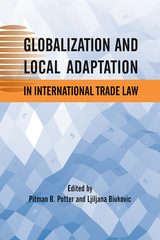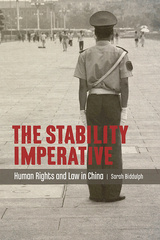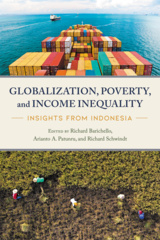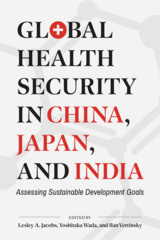
A Human Rights Based Approach to Development in India
Over the last twenty years, India has enacted legislation to turn crucial goals such as food security, primary education, and even employment into legal rights conferred on every citizen. The idea is to make governments at all levels accountable – even to citizens with little political or financial clout.
But enacting laws is one thing and implementing them through an imperfect institutional structure is another. A Human Rights Based Approach to Development in India examines a diverse range of human development issues over a period of rapid economic growth in India. Demonstrating why institutional and economic development are synonymous, the essays in this volume detail the many obstacles that may hinder development in a poor country and show how a government that cannot deliver what it promises may lose credibility. In addition, the domestic policies required to fulfill such promises may run counter to the country’s treaty obligations at the World Trade Organization or under the Agreement on Trade-Related Aspects of Intellectual Property Rights.
The contributors ultimately ask to what extent it is possible to bring about development by making it a legal right and whether India’s right to develop is truly at odds with its commitment to international agreements.
This book will appeal not only to scholars of economic development but also to professionals involved in the field in government departments, non-governmental organizations, and international organizations such as the World Bank, the Asian Development Bank, and the International Monetary Fund.
This excellent book provides a comprehensive overview of recent development-related initiatives in India and the challenges policy makers face as they grapple with a range of complex issues both in India and on the global stage.
Moshe Hirsch is the Von Hofmannsthal Chair of International Law and co-director of the International Law Forum at the Hebrew University of Jerusalem. Specializing in international economic law, public international law, and international legal theory, he is the author of Invitation to the Sociology of International Law and has contributed to the International and Comparative Law Quarterly and the European Journal of International Law, among other publications. Ashok Kotwal is a professor of economics in the Vancouver School of Economics at the University of British Columbia. He is a development economist with a particular interest in development processes in India and their impact on poverty. Kotwal is also the editor-in-chief of the Ideas for India online newsletter on Indian development research findings.Bharat Ramaswami is a professor of economics at the Indian Statistical Institute in Delhi. He received the 2004 Indian Econometric Society Mahalanobis Memorial Medal for his work in quantitative economics. Much of his work studies food, agriculture, and employment in the processes of economic development.
Contributors: Ashwini Deshpande, Simon Harding, Milind Kandlikar, Ashwini Kulkarni, Nisha Malhotra, Milind Murugkar, Pitman B. Potter, Wilima Wadhwa
Foreword / Pitman B. Potter
Introduction / India and a Human Rights Based Approach to Economic Development / Moshe Hirsch, Ashok Kotwal, and Bharat Ramaswami
1 India’s National Food Security Act and the WTO Agreement on Agriculture / Milind Murugkar
2 Primary Education in India: Evidence and Practice / Ashok Kotwal, Bharat Ramaswami, and Wilima Wadhwa
3 Ensuring the Right to Work through Better Governance / Ashwini Kulkarni
4 From Cautious Support to Precautionary Paralysis: The Evolution of India’s Regulatory Regime for Transgenics / Milind Kandlikar
5 Child Malnutrition, Infant Feeding Practices, and Nutrition Information: Evidence from India / Nisha Malhotra
6 Foreign Direct Investment and Intergroup Disparities in India / Ashwini Deshpande
7 Climate Change Mitigation: The Indian Conundrum / Milind Kandlikar and Simon Harding
Conclusion / Moshe Hirsch, Ashok Kotwal, and Bharat Ramaswami
References; Index












